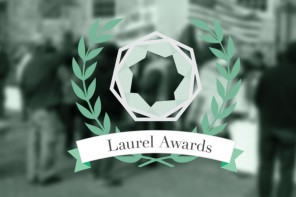The Interview
“Where do you see yourself in five years?” Cue blank stare and mild internal panic. This is possibly the most cliché question to be asked in a modern day job interview, but a question nevertheless, that I have not once been able to answer honestly as a young professional seeking to be in the cannabis industry.
I can’t tell the interviewer that I can see myself starting my own commercial marijuana business, pending full legalization in California. Actually, I definitely can’t even mention marijuana, at all, in any context. Even if I use the correct term, “cannabis,” I’ll probably get an Excuse me? and then I’ll have to say “marijuana” to clarify. The word just sounds awful in my head; I can practically feel the judgment radiating from the seat opposite me, though I’ve still said nothing and the interviewer has said nothing.
I start to sweat and desperately try to come up with something more banal that I could see myself doing in five years. The interviewer is never impressed with my boring, made-up answer. But in that moment, it’s better than completely derailing the interview with a conversation about cannabis that could go one of a hundred different directions, a majority of those being bad. And yet, if a young man said he plans to start a successful brewery or distillery, his entrepreneurial spirit would be applauded and there would be little judgment about it.
The stigma of cannabis use is a crippling obstacle for everyone in the community. It has forced many of us to lead “secret lives,” concealing our true interests and passions from new people that we meet, colleagues, and even some friends and family. As patients or recreational users, we are generally looked down upon by those who don’t understand, and as activists, we are caricatured and laughed at.
The Weight of Negative Stigma
Job-seekers in the cannabis world face a special challenge in dealing with this stigma. As the movement becomes more mainstream, how do you present yourself as an advocate and yet still appear professional? Can I share cannabis news on social media, or will co-workers and other acquaintances get offended and “narc” me out to the boss? Do I include cannabis-related experience on my resume, or try to hide it? If I do take a cannabis-related job, will I be subsequently be further “unhireable?”
Perhaps these questions are less pressing for older, more established professionals with good connections in the industry, but as a recent college graduate, with little experience, looking to break into cannabis at this opportunistic time… I am entirely lost. It’s an unfielded terrain ahead of me.
All I want to do is share my passion for cannabis with the entire world. What I don’t want is for a shallow hiring manager to think that I want to be a drug dealer when I grow up. And unfortunately, that is still a stigma on the minds of many.
Where I was once outspoken on social media, I now stick to brief engagement with content rather than trying to share it with my larger network of friends, many of whom just aren’t interested. I still proudly indicate my organizing experience for Prop 19 on my resume; but for most people I suppose you’d have to be “in the know” to remember exactly which ba lot initiative that was. It’s a sad truth that I’ve slowly learned to deal with, but now the tides are really beginning to turn in terms of “cannapreneurship” being the next big business trend.
Guidelines for Young Professionals
So, for the Millennial-aged cannabis job seekers out there – I use these common sense guidelines to appear honest and professional while still remaining an open cannabis advocate.
- Use the term “cannabis” instead of “marijuana” whenever possible. This is the correct term, after all, and sounds more professional than the racialized, stigmatized drug slang from the 1930s.
- Think hard about your specific career goals and how being associated with cannabis may affect that. Are you okay with potentially not being hired because of your views? If you aren’t ready for that kind of commitment, it may be best to understate your involvement until a later time when you feel more secure.
- Read through your resume, web and social media profiles, and LinkedIn, and put yourself in the shoes of a HR person with a very basic knowledge of cannabis, or even a negative opinion of it. Play devil’s advocate with yourself. Do you feel comfortable with how everything reads? Or are there potential ‘red flags’? Revise your profile based on your personal comfort level and don’t forget to put yourself in the hiring manager’s mindset.
- When describing your duties at a cannabis-related position, list specific tasks or duties that you handled that could be applied to other professions like sales, marketing, community outreach, or customer service. On the whole, employers want to hear about your hard skills, not the “environment” or theme at your last workplace. Use that to your advantage and include your cannabis-related experience on your resume however is most comfortable for you.
The Future of Your Career in Cannabis
I certainly used to feel sheepish even admitting that I was into the “counterculture.” Now, perhaps I’m getting jaded, but if an adult can’t see the reason behind the legalization movement, then that’s honestly not someone I would ever want to be around, let alone work for.
The bottom line is that this industry is still at the tip-of-the-iceberg stage, and it’s already bigger than wine and beer combined. Legal hemp and cannabis are going to have the effect of “Web 2.0” on so many other industries as well – health, nutrition, agriculture, psychology, pharmacology, energy, construction, raw materials, and textiles, just to name a handful. Why wouldn’t we be proud to be surfing the wave crest of inevitable success that’s coming?
This message is for the other lost young professionals out there: If you know you’ve got what it takes and cannabis is all you can think about, don’t let anyone stop you. Refine your worldview and web presence now to reflect your goals for this industry. This is our dream, our time!
What are your thoughts? Do you have questions for the author? Feel free to comment below!










